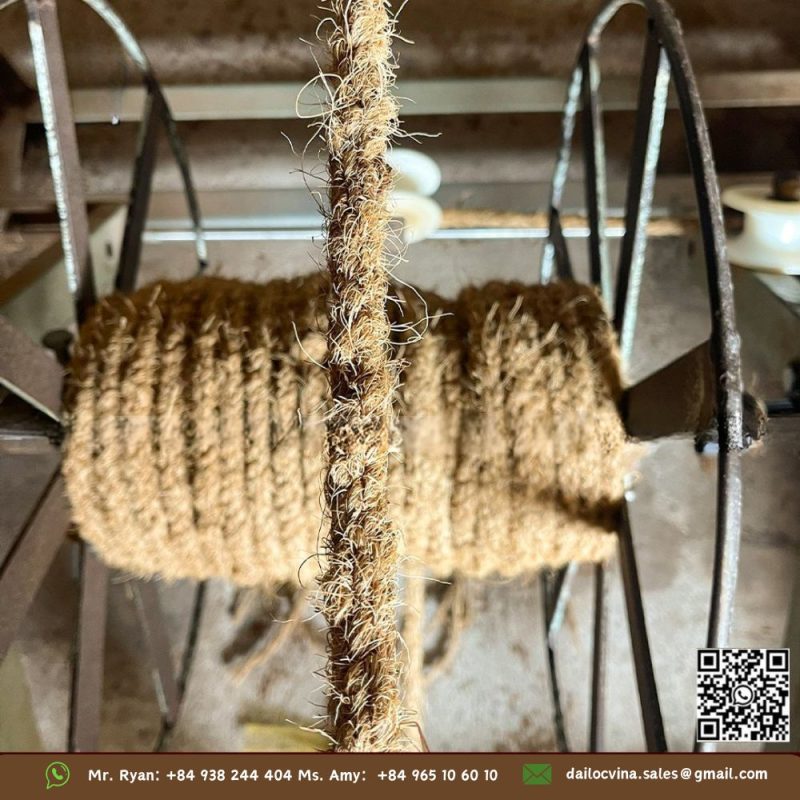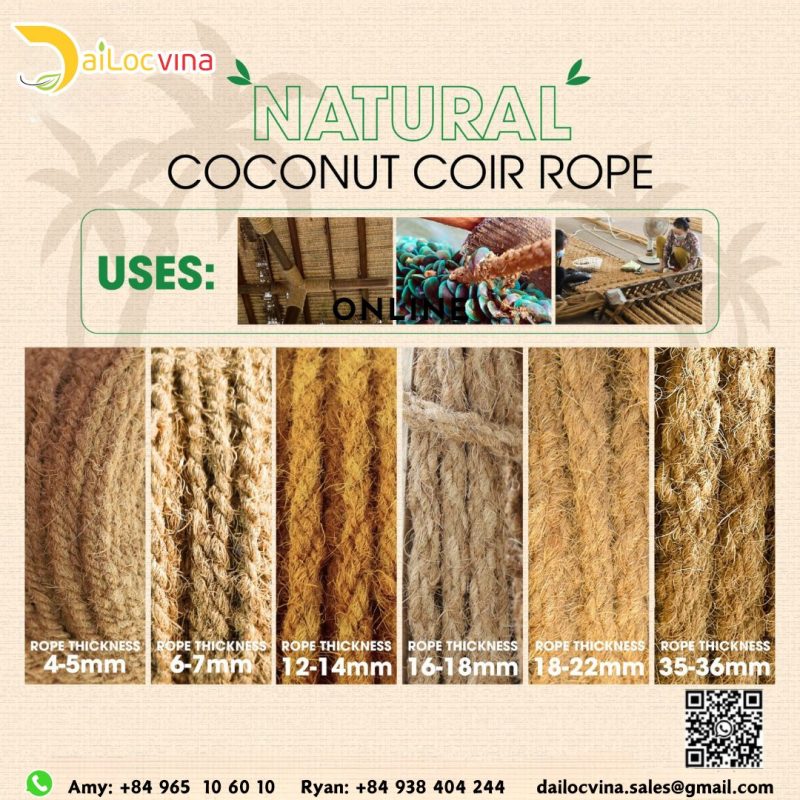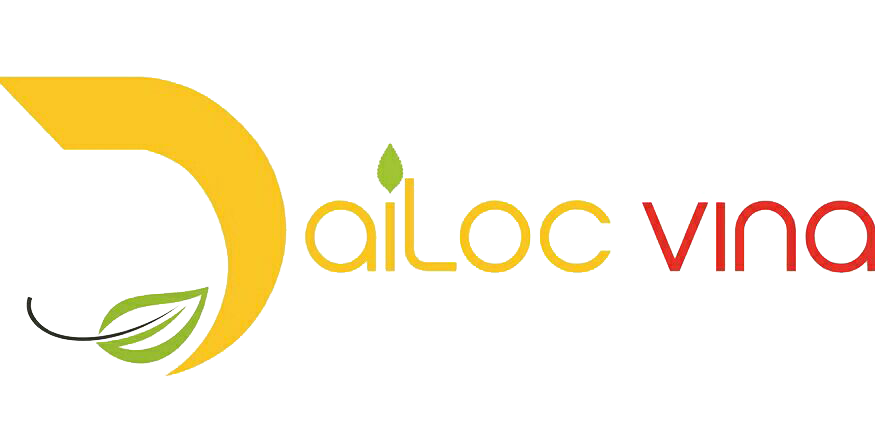News, Vietnamese
COCONUT COIR ROPE IN MARINE AQUACULTURE STRENGTH AND SUSTAINABILITY
Coconut coir rope in marine aquaculture is becoming more and more popular as a durable and sustainable material. Due to its inherent qualities, it is the best option for a range of uses in maritime settings. Here’s a deeper look at how marine aquaculture is supported and improved by the strength and sustainability of coconut coir rope:

1. Natural Strength and Durability
- Tensile Strength: The rope made of coconut coir is well known for its exceptional tensile strength, which enables it to endure the harsh conditions found in marine environments. These conditions include strong currents, wave action, and the weight of growing organisms such as seaweed and mussels.
- Resilience to Saltwater: Coir fibers are naturally resistant to the corrosive effects of saltwater, so longer periods of use will not compromise the rope’s durability or functionality.
- UV Resistance: The rope’s natural fibers provide some resistance to ultraviolet (UV) radiation from the sun, which is important for materials that are exposed to the surface in marine environments.

2. Sustainability and Environmental Impact
- Biodegradable Material: Coconut coir rope decomposes spontaneously without leaving any hazardous residues in the environment, in contrast to synthetic ropes. Because of this, it is a more environmentally friendly option that lessens waste and contamination in marine habitats.
- Renewable Resource: The husk of coconuts, a leftover from the coconut industry, is used to make coir. As a result, it becomes a renewable resource that encourages environmentally friendly manufacturing methods and lessens the need for artificial, non-renewable resources.
- Reduced Carbon Footprint: Coir rope production and use have a lower carbon footprint than synthetic alternatives because they use less energy-intensive processes and encourage the use of natural, readily available materials.

3. Applications in Sustainable Aquaculture
- Farming mussels and oysters: Coir rope offers a natural surface on which mussels, oysters, and other shellfish may adhere and develop, promoting environmentally friendly aquaculture methods. Its capacity to decompose naturally guarantees that it won’t cause long-term environmental harm, even after the agricultural cycle.
- Seaweed Cultivation: The rope is perfect for seaweed farming as an anchor and growth medium because of its strength and resilience to maritime environments. Seaweed farms using coir rope help with climate change mitigation and carbon sequestration.
- Coral Reef Restoration: Coir rope is used in coral restoration projects to attach coral fragments, providing a stable and natural substrate for coral growth and integration into reef ecosystems.

4. Economic and Social Benefits
- Encouraging Local Economies: In areas where coconuts are grown, coconut coir rope is produced, which creates jobs and boosts local economies. This has a beneficial societal impact, especially in underdeveloped nations where coconut growing is a significant source of income.
- Cost-effectiveness: Coir rope is less expensive than synthetic alternatives, making it an appealing option for small-scale and community-based aquaculture projects looking to operate sustainably while keeping costs under control.

5. Challenges and Innovations
- Management of Biofouling: Although coir rope is inherently resilient to a variety of environmental stresses, it is prone to biofouling. Ongoing studies and advancements, however, are concentrated on creating methods and treatments to reduce biofouling without jeopardizing the sustainability of the rope.
- Durability and Upkeep: Appropriate upkeep is necessary to guarantee the durability of coir rope under abrasive maritime conditions. Advancements in treatment methodologies are augmenting the robustness of coir rope, rendering it even more appropriate for extended use in aquaculture.

Coconut coir rope is an essential component of marine aquaculture’s future because it represents the ideal combination of durability and sustainability. It provides a solution that not only supports marine farming activities but also aids in the preservation and restoration of marine ecosystems because of its inherent resilience and environmental advantages, which are in line with the expanding worldwide emphasis on sustainable practices. Coconut coir rope is expected to play an increasingly bigger role in supporting sustainable and fruitful aquaculture globally as advancements continue to improve its qualities.
Where to buy coir rope – DAILOCVINA
At DAILOCVINA you can see how a coir rope is made from coconut fiber, we are proud to be the Top Manufacturer of coir product in Viet Nam such as : coir rope, coir mat, coir net, coir shade sail, coir mesh … in Viet Nam.

If you have inquiry, please contact our team sales:
Mr Ryan (Vietnam): +84 938244404 (Kakaotalk, Wechat, Whatsapp)
Ms. Doris (English): +84 785525348 (WhatsApp/ Wechat)
Amy (English) :+84 965106010 (WhatsApp/Wechat/Kakao)
Ms.Lan ( 한국 영업 담당자 ): +84 969273598 | Kakaotalk ID: hoailan98
阮祥薇(中文):+84397317401 微信ID:Nttv0608
Website: https://cocohitech.com/ (English)
Website: https://kr.cocohitech.com/ (Korea)
Website: https://cocohitech.jp/ (Japan )
Youtube: https://www.youtube.com/watch?v=zX5ZM0szC6k
